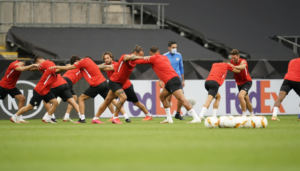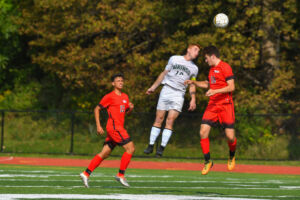Success in soccer doesn’t come overnight and isn’t solely a product of natural talent.
One of the most underrated yet crucial qualities for any young soccer player to develop is “trainability.”
What exactly does it mean to be “trainable” in soccer? Simply put, being trainable means being open to learning and constantly striving to improve. It’s about actively listening to your coaches and teammates, applying what you’ve learned in practice and games, and embracing constructive criticism. Cultivating this quality helps you grow as a player and adds immense value to your team.
Essential Behaviors and Attitudes for Becoming Trainable
Being trainable isn’t a one-time effort but a continual process that requires consistent dedication, humility, and a willingness to learn.
By embracing these behaviors and attitudes, you’re not just investing in your growth as a player but also contributing positively to your team’s overall development.
So put on your cleats, step onto that field, and strive to be your best trainable player.
Listen Actively
Active listening isn’t just about hearing what your coach or teammates say; it’s about understanding and internalizing the message.
Maintain eye contact, nod to acknowledge points you understand, and ask questions for clarification.
This shows your coach that you are engaged and eager to learn.
Be Open-Minded
Soccer is constantly evolving, and tactics that worked yesterday may not be effective tomorrow.
Stay open to trying new techniques, embracing different formations, or even playing in a position you’re not accustomed to.
This adaptability can make you a more versatile and valuable player.
Practice Consistently
The popular cliché “practice makes perfect” is famous for a reason. Consistency in practice is vital to mastering skills.
Dedicate specific times during the week for targeted practice sessions, focusing on your strengths and areas for improvement. The more you practice, the more naturally your skills will come to you during games.
Take Constructive Criticism Well
Criticism can be hard to hear, but it’s often the fastest route to improvement.
Listen and try to understand the point being made. Reflect on it and work on incorporating that feedback into your game. Learning to receive and apply constructive criticism is a valuable life skill beyond soccer.
Be Self-Motivated
Motivation shouldn’t always come from external sources like coaches or parents.
Show initiative by identifying areas for improvement and working on them independently. Your dedication to your craft, even when no one is watching, sets a good example and can motivate your teammates as well.
Be Punctual
Punctuality shows that you value and respect the team’s time and set a positive example for others.
Being consistently late can disrupt training sessions and may result in lost opportunities for you and your team.
Maintain a Positive Attitude
A positive mindset can influence not just your performance but also the overall team morale.
Encourage your teammates, celebrate their successes, and offer constructive solutions when facing challenges. This creates a supportive team environment where everyone is more likely to excel.
Set Achievable Goals
Goal setting is a powerful tool that adds direction to your training.
Whether you want to score more goals, improve your defensive skills, or master a new technique, setting achievable goals gives you something concrete to work toward. Share these with your coach; they can offer valuable insights and tailor training sessions to help you meet your objectives.
Stay Humble
No matter how skilled you become, there will always be something new to learn.
A humble attitude keeps you open to those learning opportunities and ensures you don’t become complacent. This hunger for knowledge and improvement is a hallmark of a trainable player.
Foster Open Communication
If you’re struggling with a particular skill or tactical understanding, don’t keep it to yourself.
Good communication with your coach and teammates can give you tips, advice, or additional training to overcome those obstacles.








